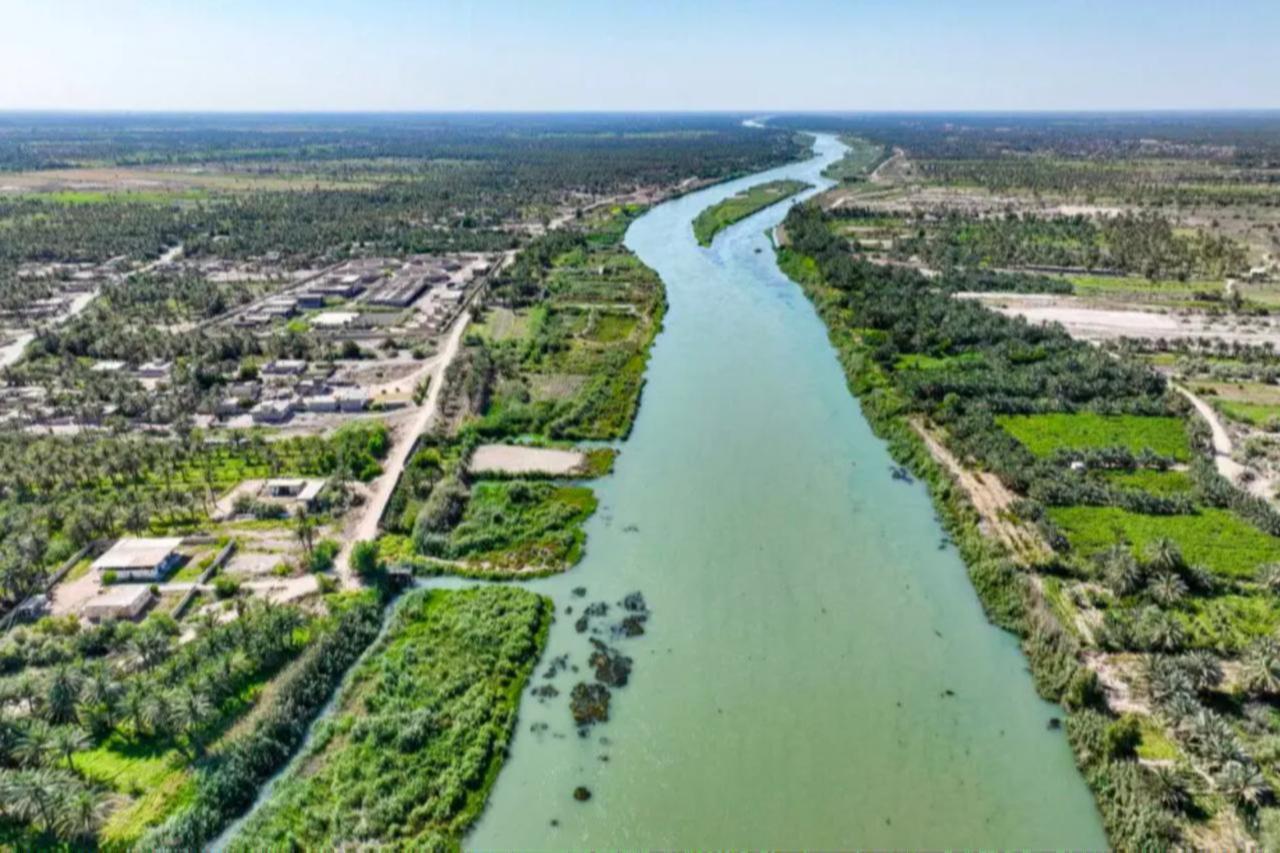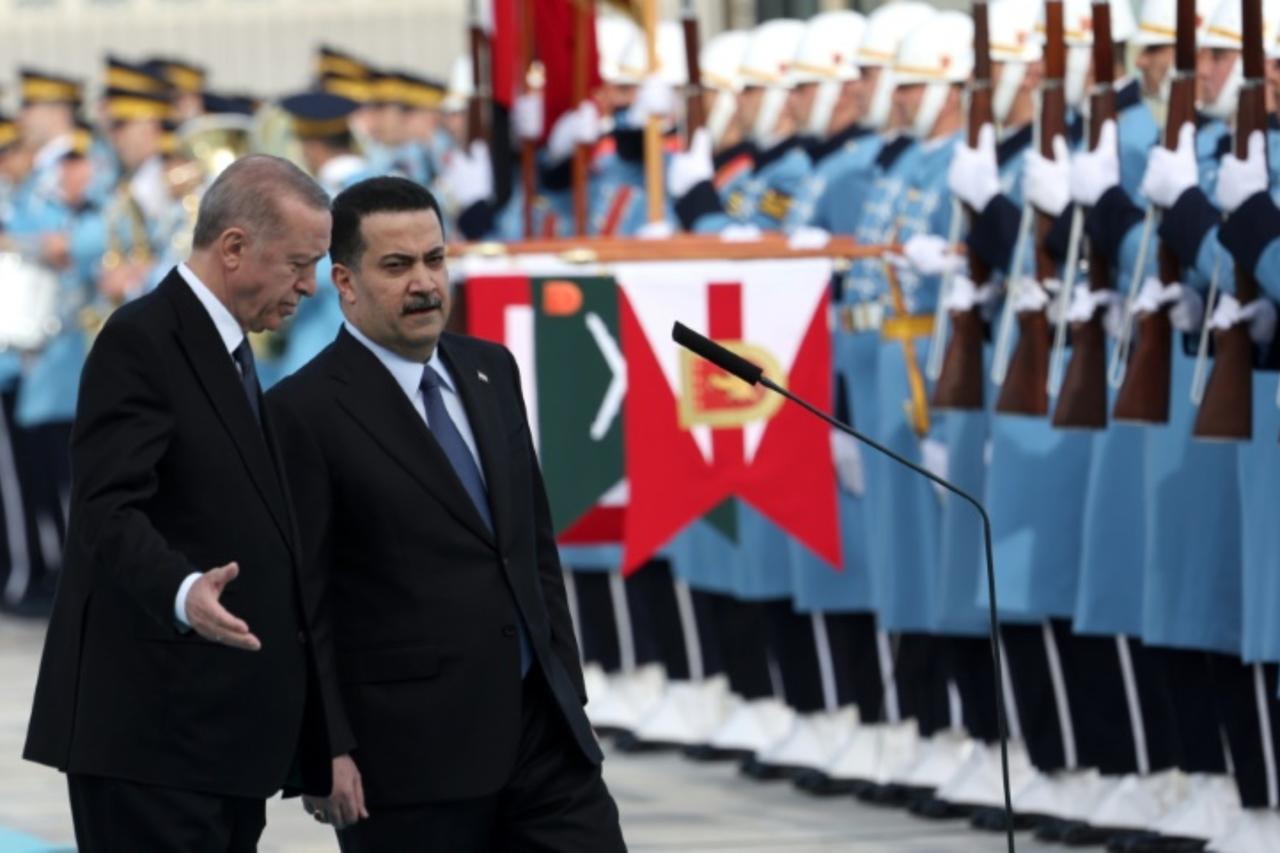
Türkiye has agreed to boost water discharges into Iraq to 420 cubic meters per second, offering relief to the drought-stricken nation grappling with one of its most severe water crises in decades.
The commitment was secured Tuesday during a visit by Iraqi Parliament Speaker Mahmoud al-Mashhadani and a delegation to Ankara, where Turkish President Recep Tayyip Erdogan approved the increased flows.
Iraq faces mounting water shortages as declining rainfall, rising temperatures and upstream damming by neighboring countries have drastically reduced flows in the Tigris and Euphrates rivers. The crisis has dried marshlands, created water shortages in southern regions and increased salinity in the Shatt al-Arab waterway near Basra.
While Iraqi officials welcomed Türkiye's decision, water experts warned the measure addresses only immediate needs without tackling underlying structural problems. They called for Iraq to pursue international arbitration and file formal complaints against both Türkiye and Iran to secure long-term water rights.
"This is only a short-term measure," Dr. Abdul Mutalib Rafat, a professor of water resources at Garmiyan University, said to The New Arab. "Türkiye's GAP project and Iran's damming of Tigris tributaries have drastically reduced Iraq's water supply. Without legal action at the international level, Iraq will remain vulnerable."
Türkiye's Southeastern Anatolia Project, known as GAP, was first proposed in the 1970s to construct 22 dams and 19 hydroelectric power plants. The project aims to generate 27 billion kilowatt-hours of electricity annually and irrigate 1.7 million hectares of farmland.

Rafat criticized Iraq's government for failing to assert its water rights diplomatically and legally, citing internal political divisions and sectarian allegiances as barriers to a unified response. He also blamed poor water governance, outdated infrastructure and wasteful usage for worsening the crisis.
"Much of Iraq's water is simply wasted. It pours into the sea instead of being conserved, reused, or redirected. Türkiye and Iran are not entirely wrong in their criticism," he said.
The water shortage has been compounded by a sharp drop in groundwater reserves, with levels falling to 600 meters in Erbil and 200 meters in Sulaymaniyah. Rafat warned that excessive extraction could deplete reserves for future generations.
"This water must be preserved for the future. Illegal drilling should be stopped immediately," he said.
Ministry of Water Resources spokesman Khaled Shamal confirmed Iraq's reserves are at historically low levels. The country now relies on limited releases from the Mosul and Haditha dams, along with modest supplies from Lake Tharthar, which contributes only 41 cubic meters per second.
Syria's severe drought has reduced Euphrates River flows to Iraq to just 300 cubic meters per second, with levels potentially dropping further during summer months. Flows from Türkiye into the Tigris currently fluctuate between 140 and 200 cubic meters per second but are expected to increase once the Ilisu hydroelectric station becomes fully operational.

During a visit to Basra on Wednesday, Iraqi Prime Minister Mohammed Shia al-Sudani announced new measures including a seawater desalination project to provide drinking water for Basra, Maysan and Dhi Qar governorates.
"This crisis recurs each year, worsened by climate change and reduced upstream releases," al-Sudani said. "We've approved the main desalination project and authorised Basra's governor to finalise the contract with the implementing company."
The prime minister also addressed illegal fish farms, which he said significantly reduce river flow and worsen water scarcity.
A recent Forbes report named Iraq among the world's most water-insecure countries, citing climate change, upstream dam projects and domestic mismanagement. Strategic water reserves have dropped to 10 billion cubic meters, nearly half the 18 billion cubic meters needed to meet summer demands.
Former water ministry adviser Ahmed Majid said Türkiye's increased discharges may offer temporary relief but warned the situation remains precarious.
"The increased flows will help cities in the centre and south for now," Majid said. "But Iraq must also negotiate with Iran, which has diverted several Tigris River tributaries that feed Iraq's northeast."
"Groundwater extraction is being considered in many areas, but it's not sustainable," he warned. "Iraq must act now, diplomatically and legally, or face a future defined by water poverty."